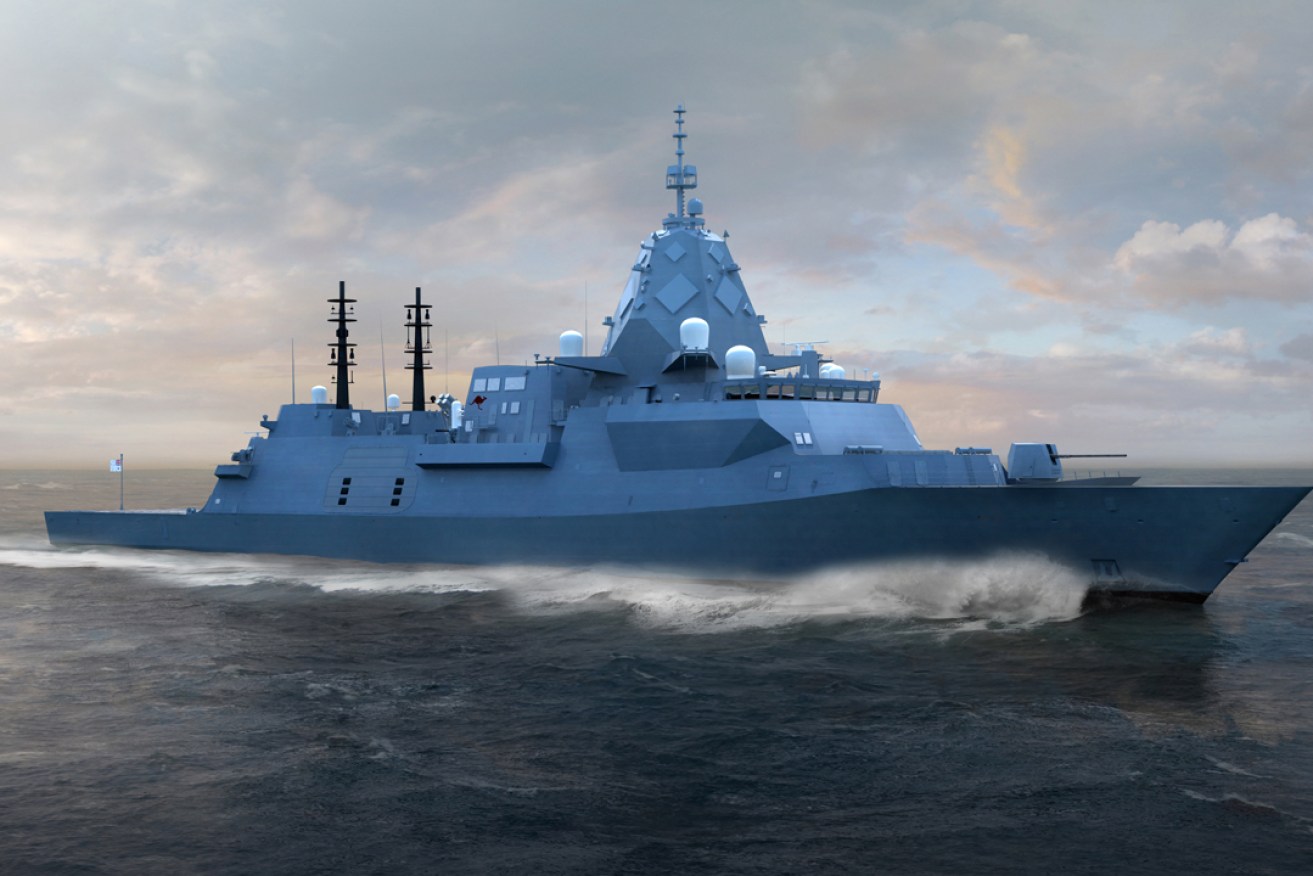The Premier says at least six frigates are needed for continuous shipbuilding in SA
The Albanese Government must commit to building at least six Hunter Class frigates in South Australia or risk a “serious impact on the industry” and national defence, says Premier Peter Malinauskas.


Hunter Class Frigates to be built at Osborne. Image: BAE Systems
The government is set to announce its plans for the nation’s naval shipbuilding pipeline next week, with the former Coalition government having previously declared nine anti-submarine warfare frigates would be built at the Osborne Naval Shipyard in Adelaide.
But there are concerns that the number could be cut under the surface fleet review, with serious implications for the local defence industry.
Premier Peter Malinauskas today reiterated the importance of a “continuous shipbuilding program” in South Australia, having visited Canberra earlier this month to lobby for a frigates commitment.
BAE Systems workers are already building the first of the Hunter Class frigates at Osborne, but to have a continuous shipbuilding program leading into the construction of nuclear submarines under the AUKUS pact, the Premier said the federal government should commit to “at least six” frigates.
“If the federal government changes contracts, that would have a serious impact on the industry and I think not just our state’s industrial base but, more importantly, the capacity for our navy to defend the country,” Malinauskas told ABC Radio Adelaide.
“We’ve been very clear about this: the federal government… have committed to a continuous ship build.
“Now it’s crunch time. They’ve actually got to sign a contract to build the frigates or not. My unqualified opinion and view is that they should be signing that contract with BAE to build the frigates and then allocate the money in the Budget to actually start that process.”
Malinauskas said there was an opportunity to pursue three separate tranches of three frigates, and that “if the federal government were only to commit to the first three and the funding and construction of the first three, then they do not get a continuous ship build program”.
“It has to be at least six,” he said.
“Six frigates would mean that the last frigate is being built in the late 2030s, which would give substantial period of time for the current or future federal government to be able to determine what comes at seven, eight and nine and beyond, whether that be a new variant.
“But there needs to the ability to say: ‘Here’s six, they can do that’, and they can essentially get on with the task of designing what follows.
“The cap of nine is something that I think is not in our State’s interest, because we’re not interested in it. We’re not interested in 12 or 15 – what we want is a continuous pipeline of work forevermore because that’s what our navy and our sovereign capability actually requires.”
Federal Opposition Leader and former Defence Minister Peter Dutton said today that some assurance for South Australian defence industry companies was needed.
“We were very clear in terms of what we had in place for South Australia,” Dutton told ABC Radio Adelaide.
Asked if “anything less than nine frigates” meant South Australia would be short-changed, Dutton said: “If the work was there in the pipeline, and companies have made investments on that basis, and this government has now decided to cancel those contracts, then what other conclusion would you draw?”
“We want to see stability in the workforce and investment continue into South Australia,” he said.
“Given the size of the defence industry and the national significance of it, it has to succeed for our country and can only do that if it has a pipeline of work otherwise the workers evaporate – they go to other countries or other companies – and then to try and ramp it back up becomes expensive and near impossible.”




